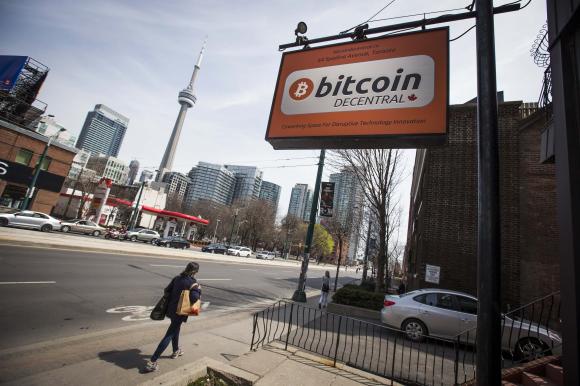www.aljazeerah.info
News, May 2014
Archives
Mission & Name
Conflict Terminology
Editorials
Gaza Holocaust
Gulf War
Isdood
Islam
News
News Photos
Opinion Editorials
US Foreign Policy (Dr. El-Najjar's Articles)
www.aljazeerah.info
|
Editorial Note: The following news reports are summaries from original sources. They may also include corrections of Arabic names and political terminology. Comments are in parentheses. |
More Corruption in US Election Campaign Finance With Legalization of Bit-Coin Donations
May 9, 2014

U.S. election panel approves bitcoin donations to political committees
WASHINGTON, Thursday, May 8, 2014, 11:21pm EDT
(Reuters) -
The U.S. Federal Election Committee said on Thursday that the virtual currency, bitcoin, could be used for donations to political action committees under certain conditions.
In a unanimous vote, the FEC, which enforces U.S. campaign finance laws, said a political committee could accept donations in bitcoins up to an individual limit of $100 for each election cycle and could also purchase bitcoins.
But the advisory opinion, issued in response to a request for guidance by the Make Your Laws political action committee, said the committee "must sell the bitcoins it purchases and deposit the proceeds into its campaign depository before spending those funds."
The FEC did not approve the use of bitcoins to purchase campaign goods and services.
The agency approved the request by the Make Your Law committee to accept individual bitcoin donations to $100 for each electoral cycle, require contributors to list their names, addresses, occupations and employers, and affirm they own the bitcoins they are contributing.
Bitcoin, the most popular digital currency, is not backed by any government or central bank, and its value can swing dramatically based on demand. Users can transfer bitcoins to each other online and store the currency in digital "wallets."
The FEC said it concluded that bitcoins were "money or anything of value" under federal election law.
But it acknowledged that "government agencies, courts and others are grappling" with whether virtual currencies should be treated as money.
The U.S. Justice Department warned last year that many virtual currency services did not have the proper controls in place to prevent money laundering and could be used to dodge U.S. laws.
(Reporting by Peter Cooney; Editing by Mohammad Zargham)
Fair Use Notice
This site contains copyrighted material the
use of which has not always been specifically authorized by the copyright
owner. We are making such material available in our efforts to advance
understanding of environmental, political, human rights, economic,
democracy, scientific, and social justice issues, etc. We believe this
constitutes a 'fair use' of any such copyrighted material as provided for
in section 107 of the US Copyright Law. In accordance with Title 17 U.S.C.
Section 107, the material on this site is
distributed without profit to those
who have expressed a prior interest in receiving the included information
for research and educational purposes. For more information go to: http://www.law.cornell.edu/uscode/17/107.shtml.
If you wish to use copyrighted material from this site for purposes of
your own that go beyond 'fair use', you must obtain permission from the
copyright owner.
|
|
|
|
||
|
||||||


